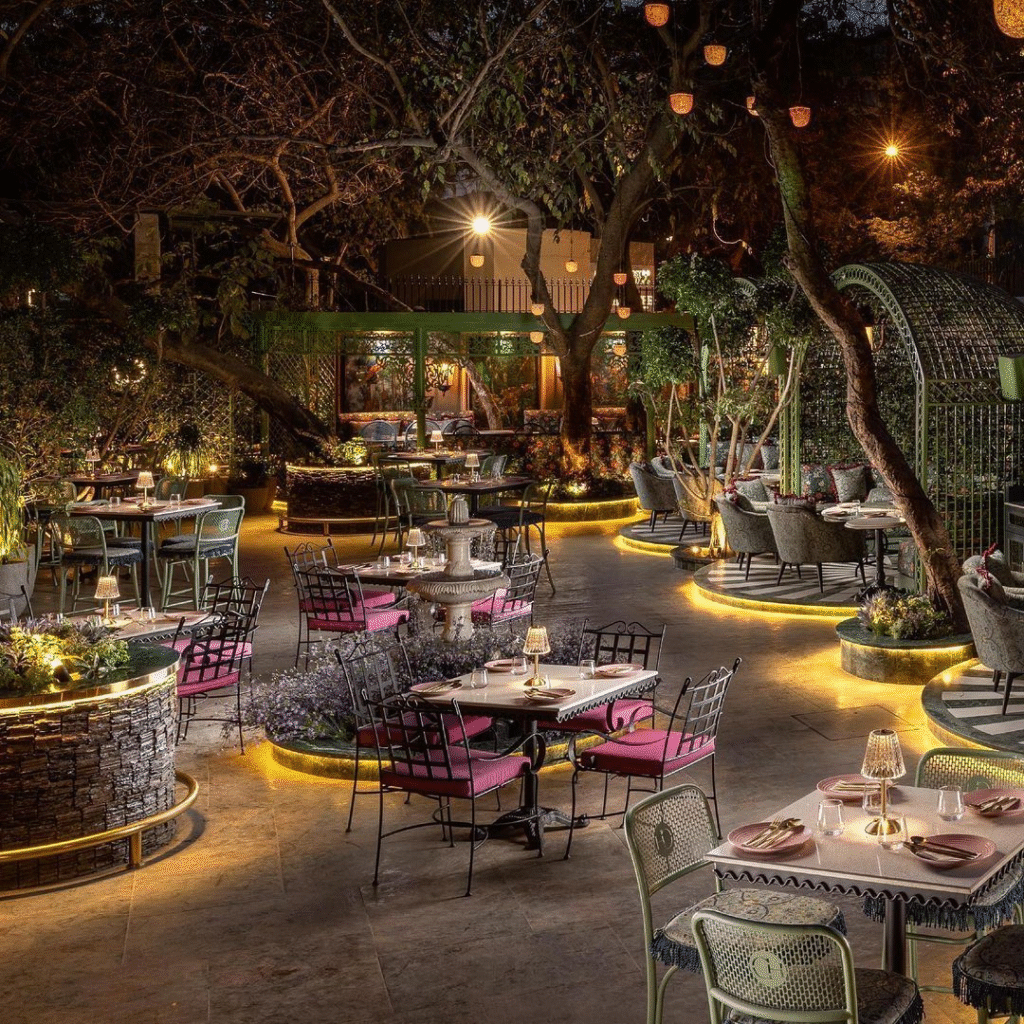WRITER: AREEBA SHAFEEQ
EDITOR: ANANYA RAUT

Credit: Pinterest
In Seoul, stepping into a cafe is less about caffeine and beverages, and it is more about the culture and aesthetics. South Korea has redefined the idea of coffee shops, or basically cafes, turning them into most aesthetic places to ever exist, the most aesthetic sanctuaries. From sleek and minimalistic interiors covered in natural light to quirky and bold-themed spaces filled with K-pop posters, books, coffees, cakes and couple-themed items, etc. Cafes has become a central part of modern Korean culture now.
Unlike traditional cafes elsewhere in the world, Korea’s main focus is on experience as much as taste. We might have experienced many cafes, but what we see is about what food or coffees they are delivering. But Korea has made aesthetics and the cafe and the experience memorable.
A cafe might be set inside a hanok, (a traditional Korean house) preserving wooden beams and courtyards and making you relive the history in itself, or it can be very futuristic with neon lights and high-tech ordering, with robots roaming around as waiters. Not only that, it can be very minimalistic and beautiful, such as just a cafe surrounded by nature. Add to this an endless variety of desserts, flower-shaped cakes, matcha souffles, bubble tea, and many more coffees that might look French to you but has a Korean kick to it.
K-POP Influence
Many K-pop idols and actors have opened their own cafés, modifying them into lifestyle places that reflect their personalities and artistry. These celebrity-owned cafés often attract both fans and tourists, Combining fandom culture with Korea’s cafe aesthetics.
Take ZMILLENIAL Café in Busan, owned by father of BTS member Jimin. It’s become a pilgrimage site for ARMYs, offering elegant interiors (a mix of minimalist and industrial design) paired with affordable pastries and signature desserts.
Another well-known celebrity Café Aewol Monsant, owned by G-Dragon of BIGBANG in Jeju Island, this café is famous for its modern aesthetic, lots of glass walls, minimalist design, and great ocean views that reflect G-Dragon’s artistic taste.
The popularity stems partly from Korea’s fast-paced culture. With long working hours and intense academic schedules, cafes serve as a third space, a piece of place designed in a way that it can relax you. Not home, not office, but a personal retreat. Here, young people study, couples date, brainstorm business ideas, or simply recharge themselves.
It is like a place to fuel yourself with something energetic and to live the moment in pure peace. The design, the interiors, and the surroundings reflect this need. Quiet corners, Instagram-worthy walls, and reliable Wi-Fi, and most importantly, the interesting menus.
What’s remarkable here is how this trend was travelled globally. We have this cafe culture from France itself. But, Korea’s cafe aesthetics, clean lines, cozy warmth, creative menus reverberate with youth everywhere. And that travelled to India. In India, the influence is visible in the metro cities like Delhi, Mumbai, and Bangalore.
Korean-inspired cafes now offer bubble tea or boba tea, Korean-style desserts, and modern minimalist interiors with aesthetic exteriors. For Indian youth influenced by K-drama, K-pop, and K-fashion, these cafes feel like a slice of Seoul transplanted into their neighbourhoods, into their own country, India.

Credit: Vogue India
But this is not entirely foreign to India. We too have long valued the idea of ‘Chai Addas‘, or we can say, a gathering place for conversation, debates, or simply laughter, where earlier these spaces centred around homes or roadside tea stalls. The cafe culture is now reinventing that idea in a global and more aesthetic form.
Just as Koreans involves cafes into everyday life and even drama scenes, Indians are making them places for their own modern stories, laughter, and peace. Startups taking shape, friendships deepening, relationships beginning over coffee.
We never knew caffeine and a place to sit and relax can make these global things and culture at its very heart. Cafe culture reflects a universal human desire, or a simple human nature, a place to pause, to connect, and to express identity or even to just shut down your mind. Korea has elevated it into an art form, and India is embracing it with its own flavour, with its own touch.
Together, the two cultures show how something as simple as coffee and cafes can become a bridge of culture, not just of taste, but of lifestyle, creativity, and community. This just simply shows, a cup of coffee, a group of friends and a place to relax can connect cultures.
Video Credit: Times Foodie
Share this article with your family and friends:

Been putting some time into 3389bet recently for the sports bets. So far, so good! They’ve got a pretty comprehensive range of events. I recommend trying it out 3389bet
Cmd368casino is my go-to for live dealer games, I’m telling ya! It’s awesome. Dealers are professional and the stream is always crystal clear. Good times all around. Take a shot cmd368casino
Just started dabbling with 78winlive, and the live casino is legit! Plenty of choices and the streaming quality’s on point. Give it a whirl, maybe you’ll win big. Worth a look! Check it now 78winlive